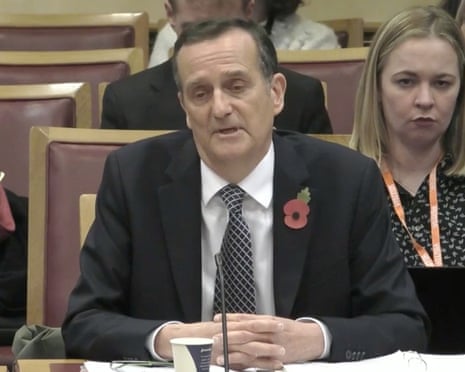Politics
UK-China Espionage Case Collapses Due to Missing Evidence

Prosecutors have confirmed that the collapse of a significant espionage trial involving alleged Chinese spying was due to the absence of a “critical element” in the government’s evidence. On Monday, Stephen Parkinson, the Director of Public Prosecutions, stated that the case could not proceed because the government did not classify China as a national security threat. This critical omission left prosecutors with “no other option” but to abandon the charges against two British individuals accused of espionage.
The trial, which involved former parliamentary researcher Christopher Cash and teacher Christopher Berry, was underpinned by accusations made under the Official Secrets Act. Both defendants have denied the charges. Parkinson indicated that the failure to establish China as an enemy, as required by law, was the decisive factor in the trial’s collapse.
In testimony to a joint committee on national security strategy, Matthew Collins, the senior civil servant responsible for drafting the government’s evidence, expressed his surprise and disappointment at the case’s outcome. He noted that his statements highlighted various threats posed by China to the UK’s economy, cyber infrastructure, and democratic institutions. Despite this, he stated that he could not meet prosecutors’ demands for a more definitive characterization of China due to the Conservative government’s stance during his tenure from 2021 to 2023.
The fallout from the trial’s collapse has led to a prolonged dispute between government officials and prosecutors over responsibility. Parkinson and Tom Little, the prosecutor managing the case, emphasized that Collins’s evidence was central to the decision to withdraw charges. Collins countered that he was unaware of the prosecutors’ concerns until a meeting on September 3, 2023, and was surprised by their decision to halt proceedings.
During the committee session, Collins admitted that prosecutors sought a “precise formulation of words” regarding the threat posed by China. He insisted that he adhered to the established government policy, which did not classify China as a generic threat.
Collins added that he would have elaborated on the threats posed by China if further questioned during cross-examination. “The way I would have answered the question under cross-examination would have been to go through all of the areas where I have specified in my witness statements,” he stated.
The tension between Collins’s evidence and prosecutors’ expectations has raised questions among Members of Parliament as to why the case was not allowed to proceed to a jury. Parkinson argued that given the nature of the evidence, there was a significant risk that the defence could have successfully claimed there was “no case to answer,” effectively preventing the jury from deliberating.
When asked about the differences between the current Labour government’s approach to China and that of the previous Conservative administration, Collins acknowledged that while there were changes in emphasis and language, there were no substantial policy shifts. He described the Labour government as keen to engage with China, a sentiment echoed during the Conservative government’s tenure.
Parkinson clarified that the absence of evidence to support a claim that China was a threat ultimately led to the trial’s failure. He noted that “no reasonable jury” could have been instructed to find that China posed a threat to UK national security based on the evidence presented.
The implications of this case extend beyond the courtroom, highlighting the complexities of international relations and national security policy in the UK. The inability to clearly define the nature of the threat posed by China has significant ramifications for future legal actions and governmental strategies in addressing espionage and foreign influence.
-

 Health3 months ago
Health3 months agoNeurologist Warns Excessive Use of Supplements Can Harm Brain
-

 Health3 months ago
Health3 months agoFiona Phillips’ Husband Shares Heartfelt Update on Her Alzheimer’s Journey
-

 Science1 month ago
Science1 month agoBrian Cox Addresses Claims of Alien Probe in 3I/ATLAS Discovery
-

 Science1 month ago
Science1 month agoNASA Investigates Unusual Comet 3I/ATLAS; New Findings Emerge
-

 Science4 weeks ago
Science4 weeks agoScientists Examine 3I/ATLAS: Alien Artifact or Cosmic Oddity?
-

 Entertainment4 months ago
Entertainment4 months agoKerry Katona Discusses Future Baby Plans and Brian McFadden’s Wedding
-

 Science4 weeks ago
Science4 weeks agoNASA Investigates Speedy Object 3I/ATLAS, Sparking Speculation
-

 Entertainment4 months ago
Entertainment4 months agoEmmerdale Faces Tension as Dylan and April’s Lives Hang in the Balance
-

 World3 months ago
World3 months agoCole Palmer’s Cryptic Message to Kobbie Mainoo Following Loan Talks
-

 Science4 weeks ago
Science4 weeks agoNASA Scientists Explore Origins of 3I/ATLAS, a Fast-Moving Visitor
-

 Entertainment4 months ago
Entertainment4 months agoLove Island Star Toni Laite’s Mother Expresses Disappointment Over Coupling Decision
-

 Entertainment3 months ago
Entertainment3 months agoMajor Cast Changes at Coronation Street: Exits and Returns in 2025









